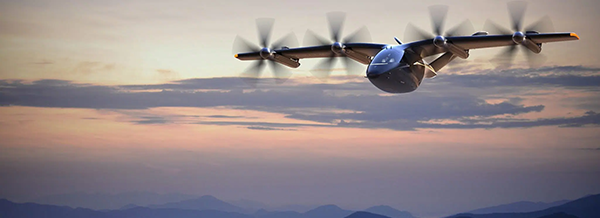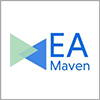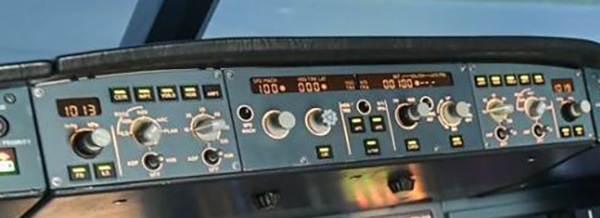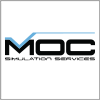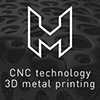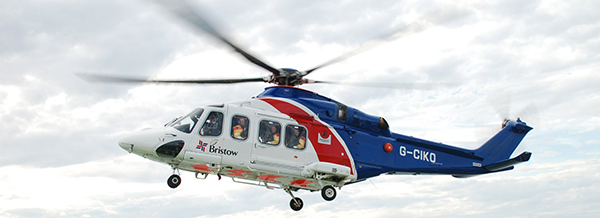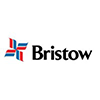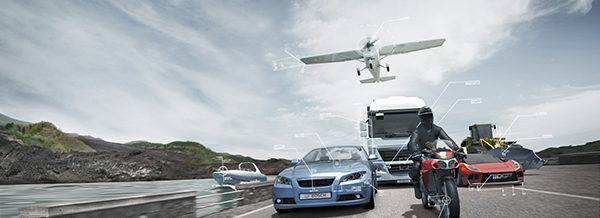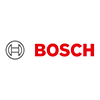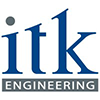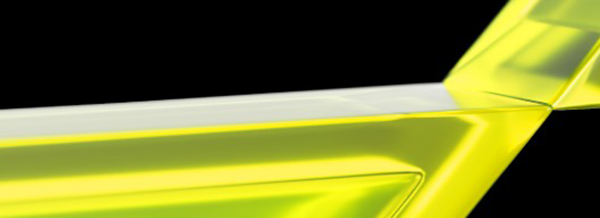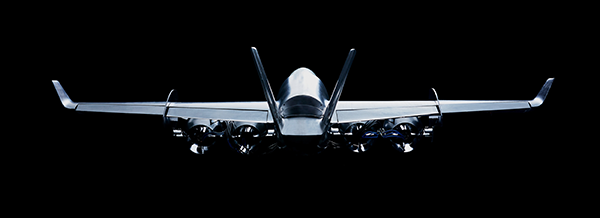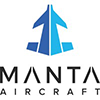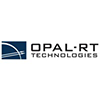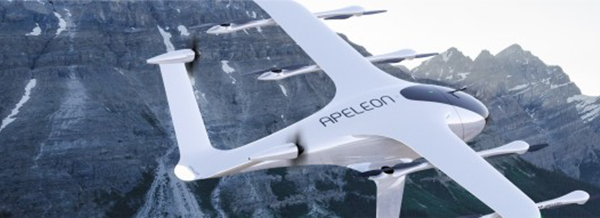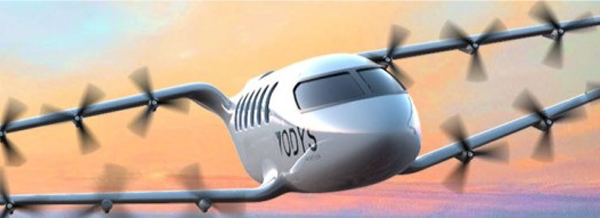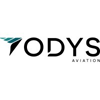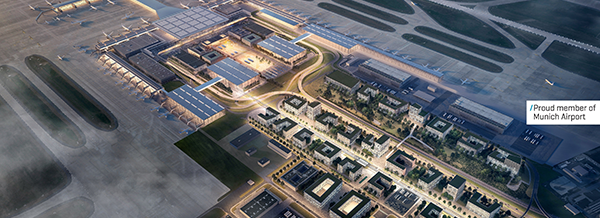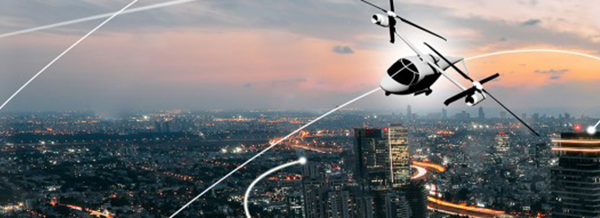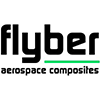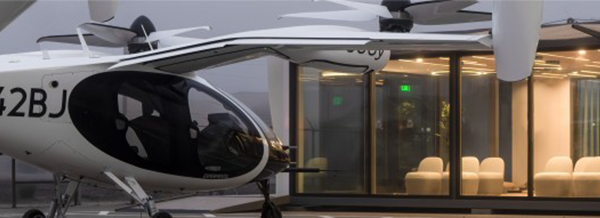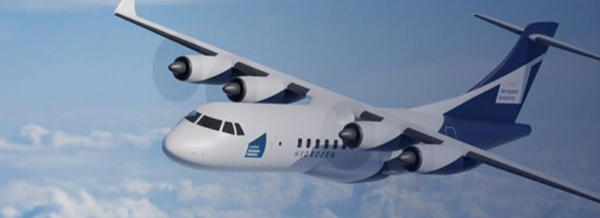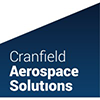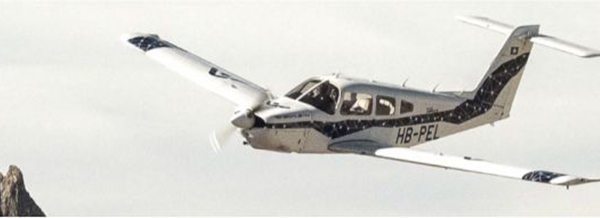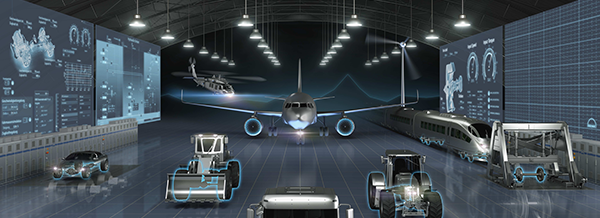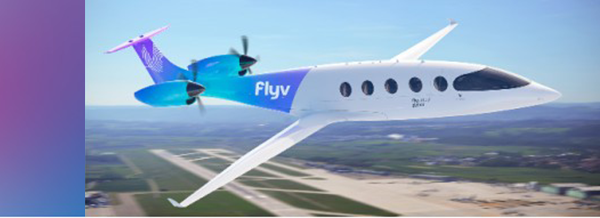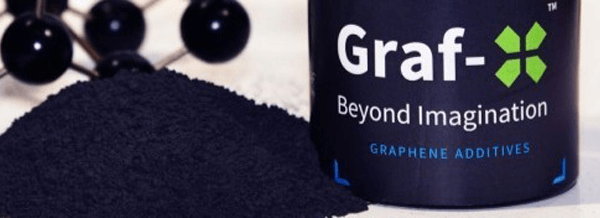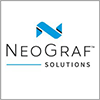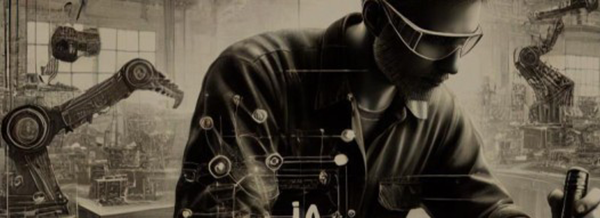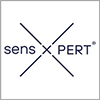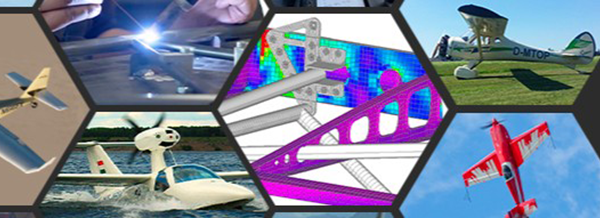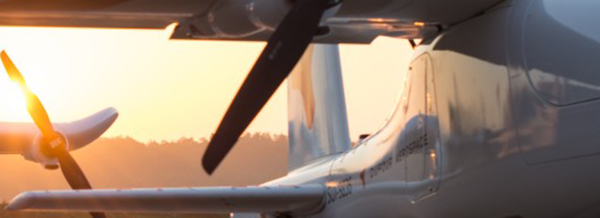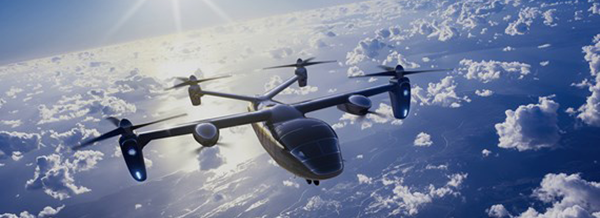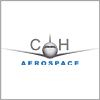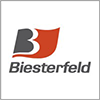| 2025 Sponsors
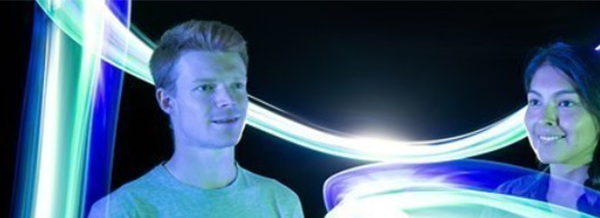
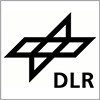
German Aerospace Center (DLR)
The German Aerospace Center (DLR) is one of Europe’s foremost research institutions driving innovation in sustainable aviation and advanced air mobility. With a strong focus on electric and hydrogen-powered propulsion, lightweight design, and digital aircraft development, DLR is at the forefront of shaping the future of eVTOL (electric Vertical Take-Off and Landing) technology.
At The eVTOL Show, DLR showcases its comprehensive R&D capabilities across the entire eVTOL innovation pipeline — from conceptual design and simulation to full-scale prototyping and testing. DLR’s facilities, including the EVo Research Platform (Stade), Small Aircraft Technology Center (Aachen), and the Virtual Product House (Bremen), provide unique infrastructure for advanced composite manufacturing, electric flight trials, and virtual certification environments.
Key focus areas include:
-
Electric & Hydrogen Propulsion Systems
-
Lightweight Materials & Automated Composite Production
-
Digital Design & Simulation for Rapid Prototyping
-
Urban Air Mobility System Integration & Public Acceptance Research
DLR also leads projects such as D-LIGHT — a pioneering initiative to develop a climate-neutral, hydrogen-powered electric aircraft — and actively collaborates with eVTOL manufacturers, including Lilium, to bridge the gap between cutting-edge research and real-world commercialisation.
Whether you’re an OEM, Tier 1 supplier, or policymaker, visit the DLR team to explore collaboration opportunities and see how their research is accelerating safe, scalable, and sustainable air mobility.
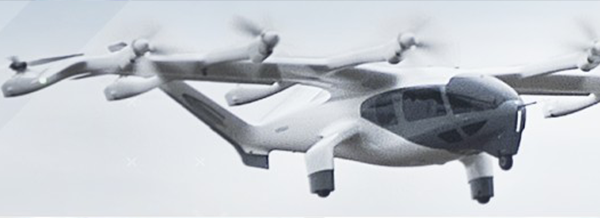

Archer Aviation
Founded in 2018 in California, Archer Aviation is pioneering electric vertical take-off and landing (eVTOL) aircraft designed specifically for urban air mobility (UAM). Their flagship production model, Midnight, is a four-passenger, piloted air taxi powered by six independent battery packs and 12 electric propellers. It boasts a range approaching 100 miles, speeds up to 150 mph, near-silent operation compared with helicopters, and zero direct emissions
Commercial Readiness: Archer holds both FAA Part 135 (air carrier/operator) and Part 141 (pilot-training academy) certifications, signaling real progress toward launching commercial air taxi services.
High-Profile Partnerships: With a $1 billion+ order book featuring notable partners including United Airlines, Stellantis, Japan Airlines / Soracle, and Jetex for global vertiport integration—including Abu Dhabi test flights—Archer exemplifies pipeline maturity and scale.
Global Launch Platforms: Archer is poised as the official air taxi provider for the 2028 Los Angeles Olympics and is preparing UAM routes in NYC, LA, Miami, the Bay Area, and the UAE—demonstrating both ambition and infrastructure readiness.
Midnight Aircraft: Designed for rapid-charging, quick turnarounds, and efficient short-haul trips (~20 mi), this model emphasizes safety (12-fold redundancy) and airline-grade reliability.
Vertiport Ecosystem: Through collaborations with city authorities and operators like Jetex, Archer is building out the critical infrastructure—from heliports to vertiports—needed for scalable UAM.
Integrated Supply Chain: Manufacturing partnerships with Stellantis establish a repeatable, scalable production model capable of delivering multiple aircraft per month from their Georgia facility.
Archer has made a strategic leap into Europe with the opening of a new engineering hub in Munich, Germany, actively recruiting top-tier engineers from the likes of Lilium.
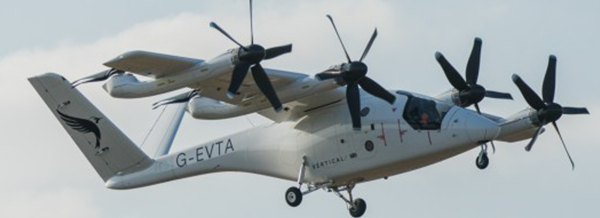
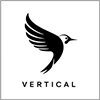
Vertical Aerospace
Vertical Aerospace is leading the UK’s charge into the electric air mobility era with its revolutionary VX4 eVTOL aircraft. Headquartered in Bristol, Vertical is redefining short-distance travel with zero-emission, electric-powered vertical take-off and landing solutions.
With a focus on commercial certification, high-performance engineering, and global-scale partnerships, Vertical Aerospace is positioning itself as one of the most credible and technically advanced players in the emerging eVTOL industry.
The VX4 is a four-passenger, piloted eVTOL designed for rapid, quiet, and sustainable urban and regional transport. Capable of cruising at 150 mph and covering distances of up to 100 miles.
Prototype Testing: Ongoing full-scale thrustborne testing at Cotswold Airport
Certification Timeline: Targeting 2026 entry into service, with the UK CAA and EASA concurrently supporting certification
Airline Backing: Pre-orders from global airlines and lessors including American Airlines, Virgin Atlantic, Avolon, and Bristow Group—with a total backlog exceeding 1,400 aircraft
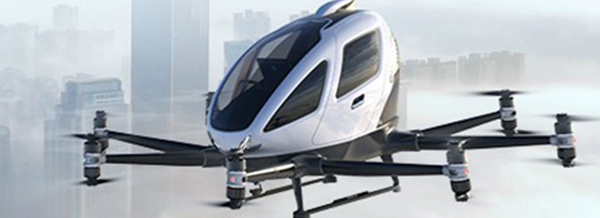

EHang
EHang is a world leader in autonomous aerial vehicle (AAV) technology, delivering complete solutions for urban air mobility (UAM). With its vision to bring safe, eco-friendly, and autonomous air travel to the masses, EHang integrates aircraft development with smart command-and-control systems, takeoff and landing infrastructure, and urban deployment models.
At the heart of EHang’s portfolio is the EH216 series—a fully autonomous, passenger-carrying eVTOL platform designed to operate without onboard pilots, offering point-to-point air mobility that is intelligent, low-noise, and zero-emissions.
EHang is rapidly growing its presence across Europe and playing a key role in shaping regulatory and operational frameworks for autonomous eVTOLs:
First Unmanned Urban eVTOL Flight in Europe
EHang achieved a major milestone by successfully completing Europe’s first fully unmanned eVTOL flight in an urban environment, held in Benidorm, Spain—demonstrating both operational safety and public acceptance in real-world urban conditions.
Participation in the AMU-LED Project
As a key partner in the EU-funded AMU-LED project, EHang is working with leading aerospace and UTM stakeholders to demonstrate urban air mobility operations across multiple European cities, including integration into existing airspace management systems.
European Urban Air Mobility Center
EHang established a dedicated European UAM Center to support AAV testing, certification, and stakeholder engagement—accelerating its roadmap for autonomous flight integration in Europe.
Strategic Partnerships
At the Paris Air Show, EHang signed an MoU with ANRA Technologies to jointly advance unmanned traffic management (UTM) and accelerate commercial UAM adoption in European airspace.
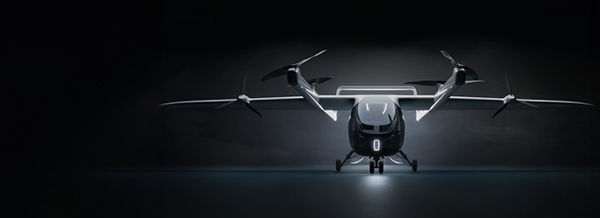
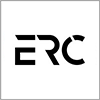
ERC System
Munich-based ERC System is revolutionizing the future of air transportation with a multi-mission aviation platform designed to solve the time-cost dilemma of modern mobility. Offering both fully electric and hybrid-electric propulsion, ERC’s aircraft delivers a unique combination of vertical and conventional takeoff capabilities, high payload capacity, and mission-specific modularity—all at significantly lower operational costs compared to traditional helicopters.
With a range of up to 800 km (500 miles) in hybrid-electric mode, a cruise speed of 220 km/h (120 knots), and charge times as short as 20 minutes to 80%, ERC is building a cost-efficient, certifiable solution for fast, scalable, and sustainable air transport.
ERC System is advancing a highly versatile and certifiable eVTOL platform designed to meet real-world mission requirements across medical, cargo, defense, and passenger transport. Featuring a lift-and-cruise architecture with 8 vertical and 2 horizontal propellers, the aircraft offers both VTOL and CTOL capabilities and is available in full-electric or hybrid-electric configurations. With a payload capacity exceeding 500 kg and 5.2 m³ of internal volume, its rear clamshell doors enable rapid loading of stretchers, equipment, and pallets. Built with safety at its core—including fly-by-wire controls, protected propeller placement, and a targeted catastrophic failure rate of 10⁻⁹—ERC’s aircraft is being developed in alignment with EASA SC-VTOL and FAA certification standards. The platform has already completed two full-scale demonstrator generations—ECHO and ROMEO—demonstrating cost-efficient engineering and a clear path to industrial readiness. Configurable for manned or unmanned operations, it supports a wide range of use cases: hospital-to-hospital medevac, tactical defense missions, high-volume cargo delivery, and quiet, low-emission urban air mobility for up to five passengers.
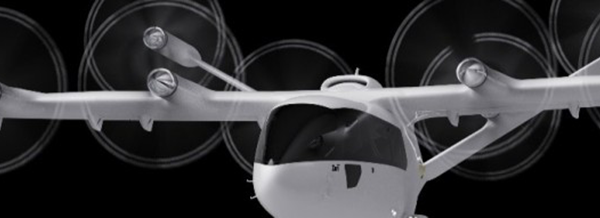

Zuri
Zuri is redefining regional and urban air mobility with a hybrid-electric vertical takeoff and landing (VTOL) aircraft designed to offer long-range, door-to-door flight without reliance on traditional airport infrastructure. Zuri bridges the gap between the flexibility of urban eVTOLs and the endurance of regional aircraft, delivering a real-world range of over 700 km (with reserves) thanks to its advanced hybrid powertrain that combines lightweight lithium batteries with an onboard turbogenerator. This hybrid configuration provides over five times the energy density of current battery technology—making Zuri one of the most capable VTOL platforms in development today.
Unlike conventional eVTOLs limited to short hops and heavy charging needs, Zuri’s aircraft integrates vertical takeoff capability with fixed-wing cruise efficiency. This allows for quiet landings on rooftops and in urban peripheries while maintaining the speed, reach, and energy performance required for longer intercity missions. With a cruise speed of 220 km/h and fully autonomous or piloted configurations in development, Zuri is focused on delivering a low-emission, highly efficient, and scalable solution for real-world mobility needs.
Zuri’s aircraft is optimized for mission profiles that demand greater flexibility and endurance, including regional business travel, airport shuttles, corporate mobility, emergency response, and government operations. Its use of Sustainable Aviation Fuel (SAF) in the hybrid turbogenerator drastically reduces lifecycle CO₂ emissions—lower than even grid-powered electric VTOLs—while its compact battery system lowers environmental impact, manufacturing complexity, and replacement costs. With a typical battery size of just 60 kWh, compared to 200–300 kWh in many eVTOL designs, Zuri offers greater efficiency, reduced weight, and longer component lifespans.
In 2024, Zuri secured €3 million in Pre-Series A funding, led by investors Jan Barta and Boris Renski, bringing total funding to €4.4 million. This capital is now fueling the development of the TD 2.0 Technology Demonstrator and the expansion of Zuri’s engineering and production teams. As the hybrid VTOL sector matures, Zuri stands out not only for its advanced aircraft architecture but also for its clear path toward certification, commercialization, and scaled production.
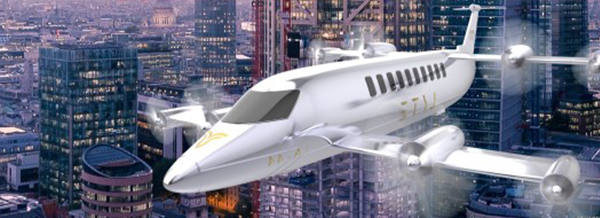

LYTE Aviation
LYTE Aviation is reshaping the landscape of advanced air mobility by developing the world’s first heavyweight 40-seat hybrid-hydrogen eVTOL aircraft—the LA-44 SkyBus for passengers and SkyTruck for cargo. Headquartered in London and operating globally, LYTE Aviation is moving beyond the conventional “start-small” approach that has defined much of the eVTOL sector. Instead, the company is setting bold new standards for mass transit, regional aviation, and cargo logistics with aircraft designed to operate without runways and with significantly lower emissions.
At the heart of LYTE’s innovation is a disruptive hybrid propulsion system that combines hydrogen fuel cells, electric power, and existing aviation technologies to deliver exceptional range, capacity, and efficiency. With an expected range of up to 1,000 km, ultra-low emissions, and capacity for 40 passengers or equivalent cargo, the LA-44 family targets use cases ranging from urban commuter corridors to intercity and regional air transport, as well as humanitarian aid and disaster relief.
Key Features of the LA-44 SkyBus & SkyTruck
-
Capacity: 40 passengers (SkyBus) or high-volume cargo (SkyTruck)
-
Powertrain: Hybrid-hydrogen-electric propulsion with SAF compatibility
-
Range: Up to 1,000 km (standard), with extended-range variants under development
-
Infrastructure Light: VTOL capability eliminates need for traditional runways
-
Efficiency: Up to 5x more fuel-efficient than helicopters
-
Variants: 19-seat X-Primer business model for private and charter operations
-
Mission Flexibility: Designed for commuting, logistics, and emergency response
LYTE is currently engaged in 19+ active collaborations across Germany, Sweden, Norway, the Netherlands, UAE, Saudi Arabia, India, Brazil, and the U.S., including partnerships with infrastructure developers like Bluenest by Globalvia, LYNEports, and hydrogen technology partner H3 Dynamics. Use cases range from urban shuttle services (e.g., Seattle-Bainbridge) to regional connections (e.g., Twente Airport to Paris).
The company is also a regular fixture in global aviation and innovation news, featured by Aviation Week, Al Jazeera, ZAG Daily, eVTOL Insights, AIN, and Revolution Aero for its “all-or-nothing” approach to disrupting the mid-range aviation segment.
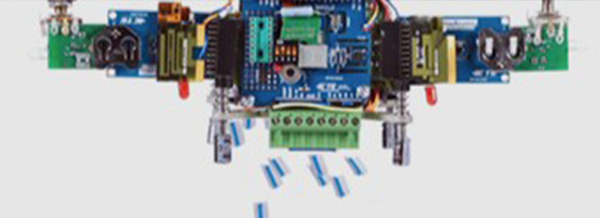
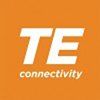
TE Connectivity
A global leader in high-performance interconnect, sensor, and harnessing technologies, delivering essential systems that enable the safe, efficient, and scalable development of electric vertical take-off and landing (eVTOL) aircraft.
As the eVTOL sector pushes the limits of electric propulsion, system complexity, and power management, TE provides an end-to-end portfolio of high-voltage, high-bandwidth, and lightweight interconnect technologies—designed specifically to meet the stringent size, weight, and power (SWaP) requirements of advanced air mobility platforms.
TE’s offering spans four critical areas: power and propulsion systems, avionics and flight control, infotainment and cabin solutions, and structural integration. For high-voltage electric systems, TE delivers KILOVAC relays, flexible power cables, and power distribution units capable of handling peak loads in extreme environments. For avionics, TE’s reduced-size connectivity solutions—such as CANbus cables, mini-Ethernet (Mini-ETH), optical harnesses, and modular installations—support increasing demands for bandwidth, redundancy, and system integration. In the cabin, TE enables secure, high-speed connectivity for infotainment, passenger interfaces, and in-flight comfort using a range of shielded connectors and lightweight interconnects. Structurally, TE helps OEMs design distributed architectures with integrated sensor-wire-connector systems that reduce mass and streamline build complexity.
By applying its “follow-the-wire” design approach, TE supports every stage of an eVTOL’s electrical architecture—ensuring compatibility, reliability, and weight efficiency across the entire platform. The company also collaborates with major industry standards bodies such as SAE and ARINC to drive regulatory readiness and cross-sector innovation.
Working directly with global eVTOL manufacturers, TE is accelerating the development of next-generation air mobility platforms while simplifying procurement through integrated system design and part number consolidation. Whether supporting prototyping, certification, or high-rate production, TE provides the critical electrical infrastructure required to scale advanced air mobility safely and efficiently.
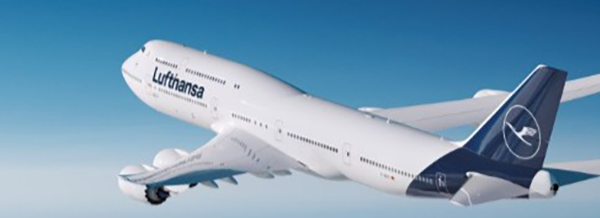
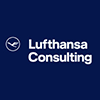
Lufthansa Consulting
Lufthansa Consulting is a globally recognized aviation advisory firm with over 35 years of experience supporting airlines, airports, governments, and OEMs in navigating transformation, growth, and operational excellence. As a leading voice in the emerging Advanced Air Mobility (AAM) market, Lufthansa Consulting is actively shaping the future of autonomous eVTOL (A-eVTOL) operations through strategic insights, regulatory engagement, and market-entry planning.
The firm’s recent thought leadership explores how Autonomous Passenger-Carrying eVTOLs (A-eVTOLs) can provide a scalable, economically viable solution to meet growing urban and regional mobility demands. Unlike piloted eVTOLs, A-eVTOLs offer lower crew costs, increased fleet flexibility, and potential for shared ownership models. Lufthansa Consulting identifies “Future-Liners”—a new class of airline-like operators that manage A-eVTOLs remotely—as the operational backbone of this emerging model, supported by robust OEM design, safety redundancy, and ground-based control systems.
Recognizing regulatory leadership as a critical enabler, Lufthansa Consulting highlights the Chinese government’s proactive issuance of unmanned aircraft regulations and EHang’s historic type certification as key milestones for global replication. The firm also emphasizes that early A-eVTOL operations should begin in low-risk environments—such as offshore cargo or emergency transport—before scaling into dense urban settings, allowing public trust, political support, and infrastructure to mature in parallel.
With its expertise across strategy, operations, regulatory frameworks, and stakeholder alignment, Lufthansa Consulting provides the aviation ecosystem with a roadmap for unlocking the full potential of A-eVTOLs. Whether advising on vertiport integration, future-liner business models, or OEM certification pathways, Lufthansa Consulting is a key partner in bringing the autonomous air mobility vision to life.
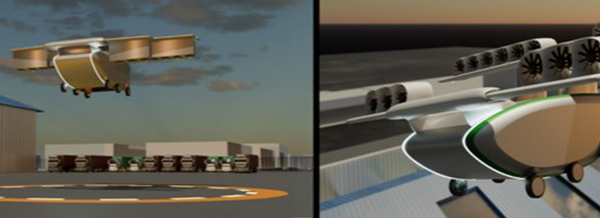

Grasshopper Air Mobility
Robotic Flight-Drive Cargo Drones for Scalable Logistics
Grasshopper Air Mobility is pioneering a new category of advanced logistics platforms with its revolutionary e350 robotic cargo drone—a fully autonomous vehicle that seamlessly integrates flight and ground mobility. Designed for heavy-payload logistics, the e350 combines electric and hybrid-hydrogen propulsion with the ability to drive on the ground, enabling true end-to-end automation from warehouse to warehouse.
With a payload capacity of 350 kg (770 lbs), a flight range of up to 600 km, and a drive range of 10 km, the e350 eliminates the bottlenecks associated with first- and last-mile delivery by autonomously navigating both air and ground environments. Once landed, the drone folds its wings and drives directly into intralogistics environments—cutting handling costs, reducing downtime, and enabling full system integration with existing supply chain infrastructure.
Grasshopper’s platform is purpose-built for high-value, time-sensitive logistics—particularly cold-chain transport and automated factory supply chains. From sealed, climate-controlled cargo containers to advanced data tracking and AGV-compatible interfaces, Grasshopper enables indoor-to-indoor delivery with unmatched efficiency and precision.
Grasshopper’s commitment to decarbonizing logistics is reflected in its membership in the Alliance for Zero-Emission Aviation (AZEA) and its ongoing efforts to build a green supply chain for aircraft manufacturing. Their propulsion choices, automation-first architecture, and ultra-quiet operation support the industry’s net-zero goals while making drone-based logistics viable, scalable, and acceptable in dense urban environments.
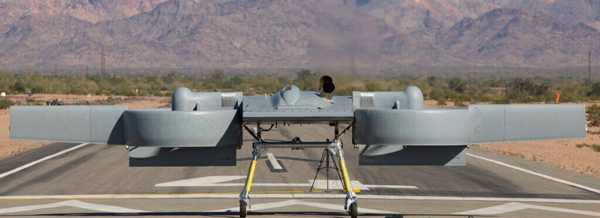
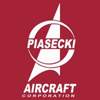
Piasecki Aircraft Corporation
Pioneering eVTOL & Hybrid Rotorcraft with Hydrogen and Compound VTOL Tech
Piasecki brings over six decades of innovation in vertical flight, transitioning from legacy helicopters to next-gen eVTOL platforms. Key offerings include:
-
PA‑890 Slowed‑Rotor Compound eVTOL: A five-seat, full-electric design promising 50% lower operating costs, reduced noise, and zero emissions—paving the way for FAA Part 27 certification.
-
HAXEL Hybrid‑Electric Coaxial Demonstrator: Converting a two-seat CoAX‑2D helicopter to hybrid-electric, using hydrogen fuel cells, marking a first step toward zero-emission vertical flight.
-
ARES Tilt‑Duct VTOL UAS: A modular, multi-mission unmanned platform with successful tethered hover flights, funded by U.S. Air Force and Army initiatives.
-
Rapid Prototyping & Certification Support: Leverages AS9100-certified rapid prototyping and flight testing, enabling efficient iteration from concept to airworthiness.







